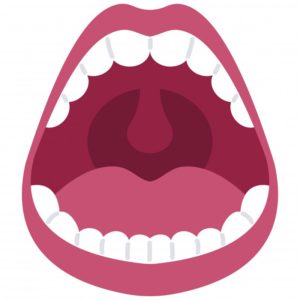
You know how to use a smartphone. Now, imagine having an understanding of all the parts of your smartphone. Not only would that be impressive technical knowledge to have at your disposal, but it stands to reason that you would probably know how to take better care of it than you already do and fix more issues as they arise without leaning on tech support.
If you think about it, understanding the parts of your mouth more thoroughly could make you better equipped to stay on top of your oral health and have a better comprehension of why it matters. You probably started brushing your teeth as a child because you were told to, but as you grew older and understood why it mattered you were likely more compelled to be consistent about doing it.
Keep reading to learn more about the parts of the mouth from your dentist in Friendship Heights and the role they play to help you function effectively.
How Do My Salivary Glands, Gums, and Alveolar Bone Contribute to a Healthy Mouth?
You have six salivary glands that produce the clear liquid known as saliva, which is made up predominantly of water and contains substances that break down food to begin the digestive process. Saliva also moistens your mouth to help with speaking, chewing, and swallowing.
Plus, it washes bacteria from your teeth and gums. The proteins and minerals in saliva play a vital role in protecting the enamel, as well.
Your mouth’s gum tissue holds your teeth in place and protects the roots from decay. You may be familiar with gum disease, and the main symptoms include swelling and chronic bleeding. These warning signs are important because unchecked gum disease can lead to tooth and bone loss.
On the other hand, the alveolar bone is not a well-known portion of the mouth. The roots of your teeth anchor them in your jawbone. The alveolar bone surrounds the roots to stabilize the teeth.
What Benefits Do My Tongue, Lips, and Cheeks Offer My Teeth?
The tongue is a powerful muscle that facilitates chewing, swallowing, speaking, and tasting food. Taste buds, sensory receptors on your tongue, enable you to enjoy the food you eat. In fact, the human tongue can have up to 10,000 taste buds, which help you detect sweet, salty, bitter, and savory flavors.
The pressure the tongue applies within the mouth helps the oral cavity maintain its shape and keeps the teeth properly positioned.
Your lips and cheeks contribute to everything from forming your facial expressions to breathing and speaking. They also keep food and saliva in your mouth while you chew. These strong muscles brace your teeth to keep them in the proper position.
What Are My Temporomandibular Joints Used for?
This part of the mouth is rarely discussed. Your two temporomandibular joints facilitate your ability to chew, speak, and swallow. They also enable your mouth to open and close, as well as allow you to move your lower jaw forward and side to side.
These joints are located on both sides of your head near your ears and work together with your jawbone, facial muscles, and ligaments. Any disruption to the synchronization of this pair, which can happen if you grind your teeth at night, can result in facial pain, difficulty in chewing, and jaw stiffness.
If you take diligent care of your teeth, well done, and certainly keep that ball rolling. But be sure to keep the full environment in your mouth functioning properly. Rinse with an antimicrobial mouthwash, brush your tongue and your gums, and visit your dentist twice each year so they can check your entire mouth for signs of disease in addition to providing the thorough cleaning that will keep your oral health in stellar status.
About the Practice
At Aesthetic & Family Dentistry of Washington, we take pride in offering our patients top-tier, trustworthy, and convenient dental care. One thing that you can count on when you visit us, whether it’s anything from a checkup and cleaning to dental implants, is that we customize our dentistry to fit your unique needs and educate you on the best practices to keep your smile healthy. We understand that teeth might be the first thing that comes to mind when you think about your mouth, but there’s a lot more going on in there. We can answer any follow-up questions you might have from this blog post during your next dental exam and cleaning. To make an appointment, visit our website or call (202) 364-8989.
